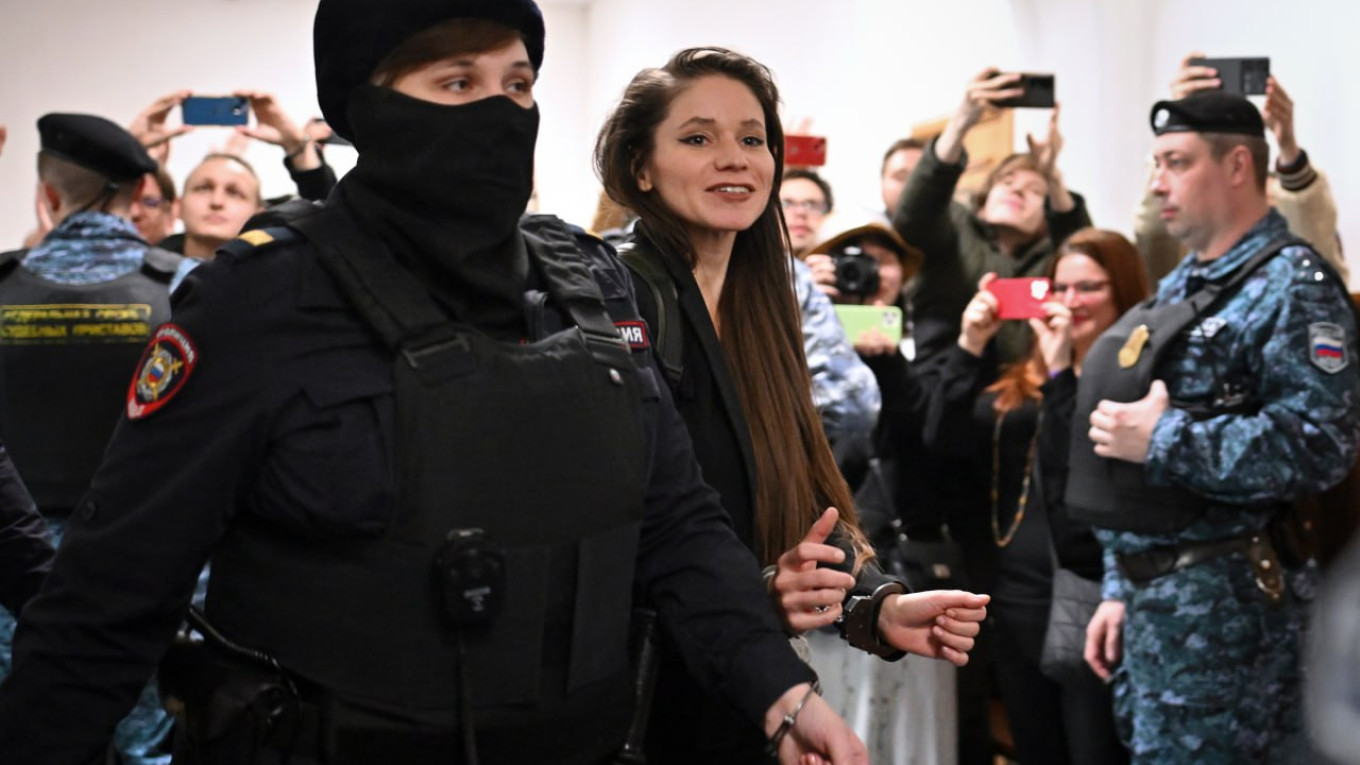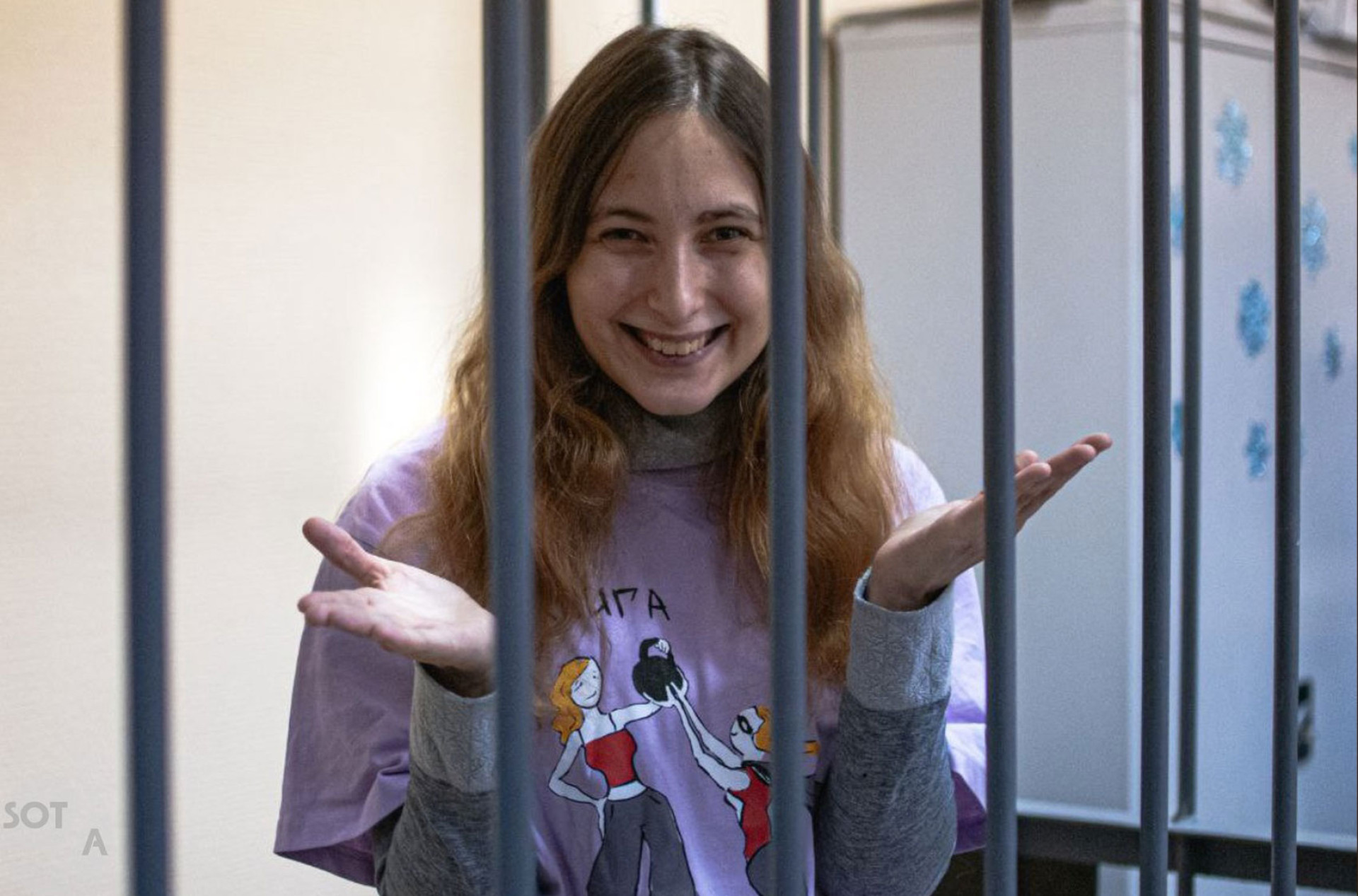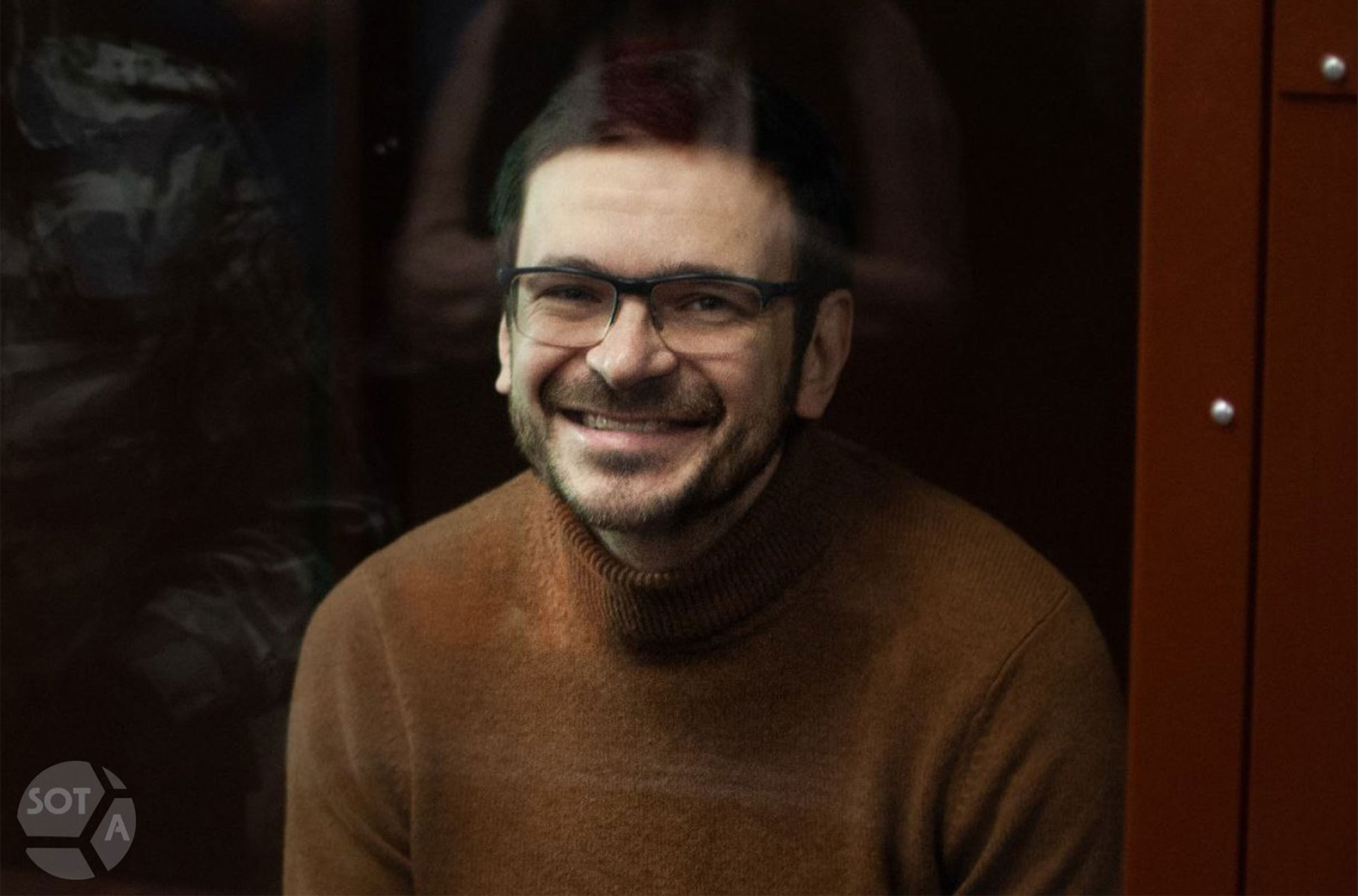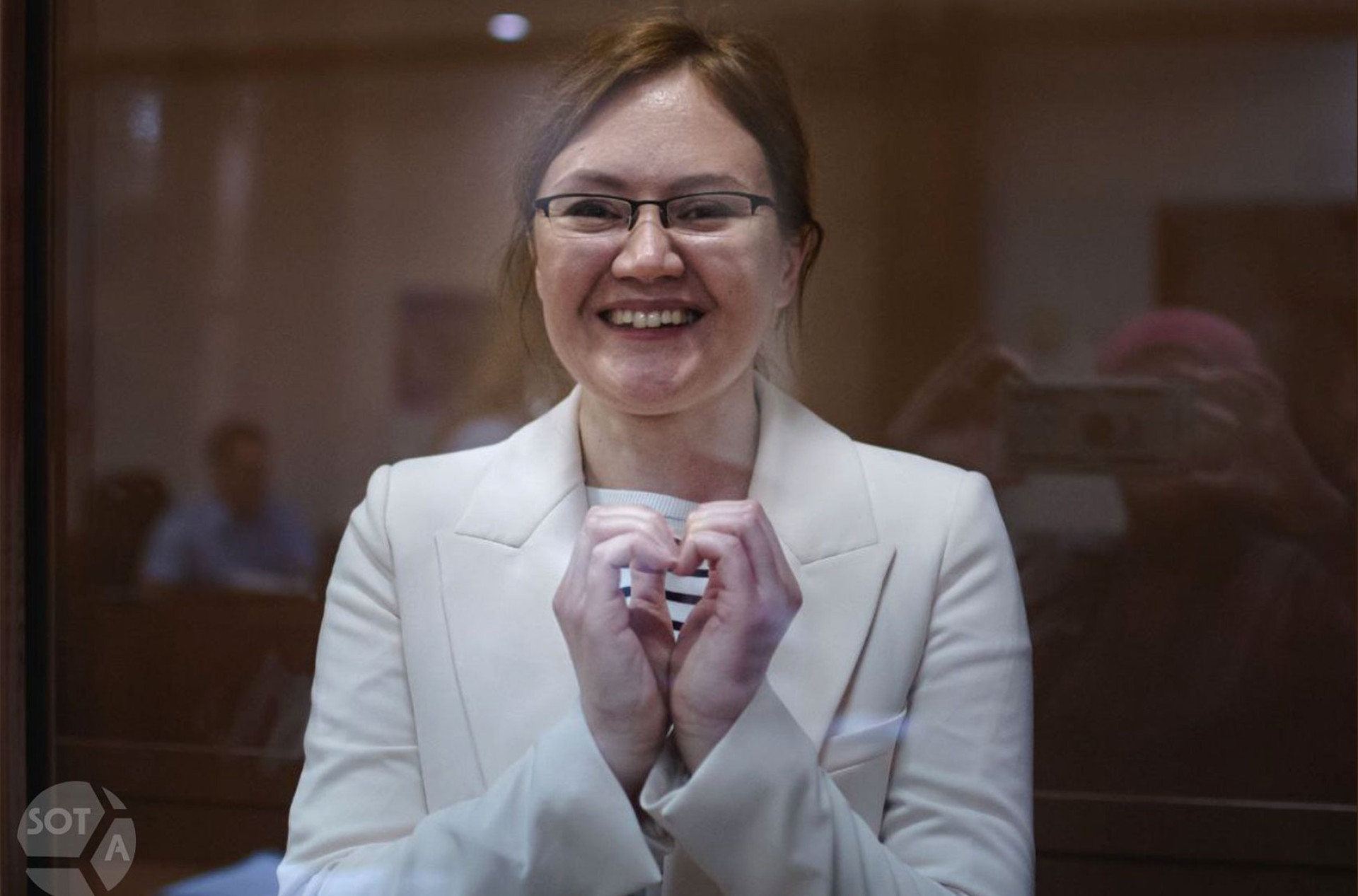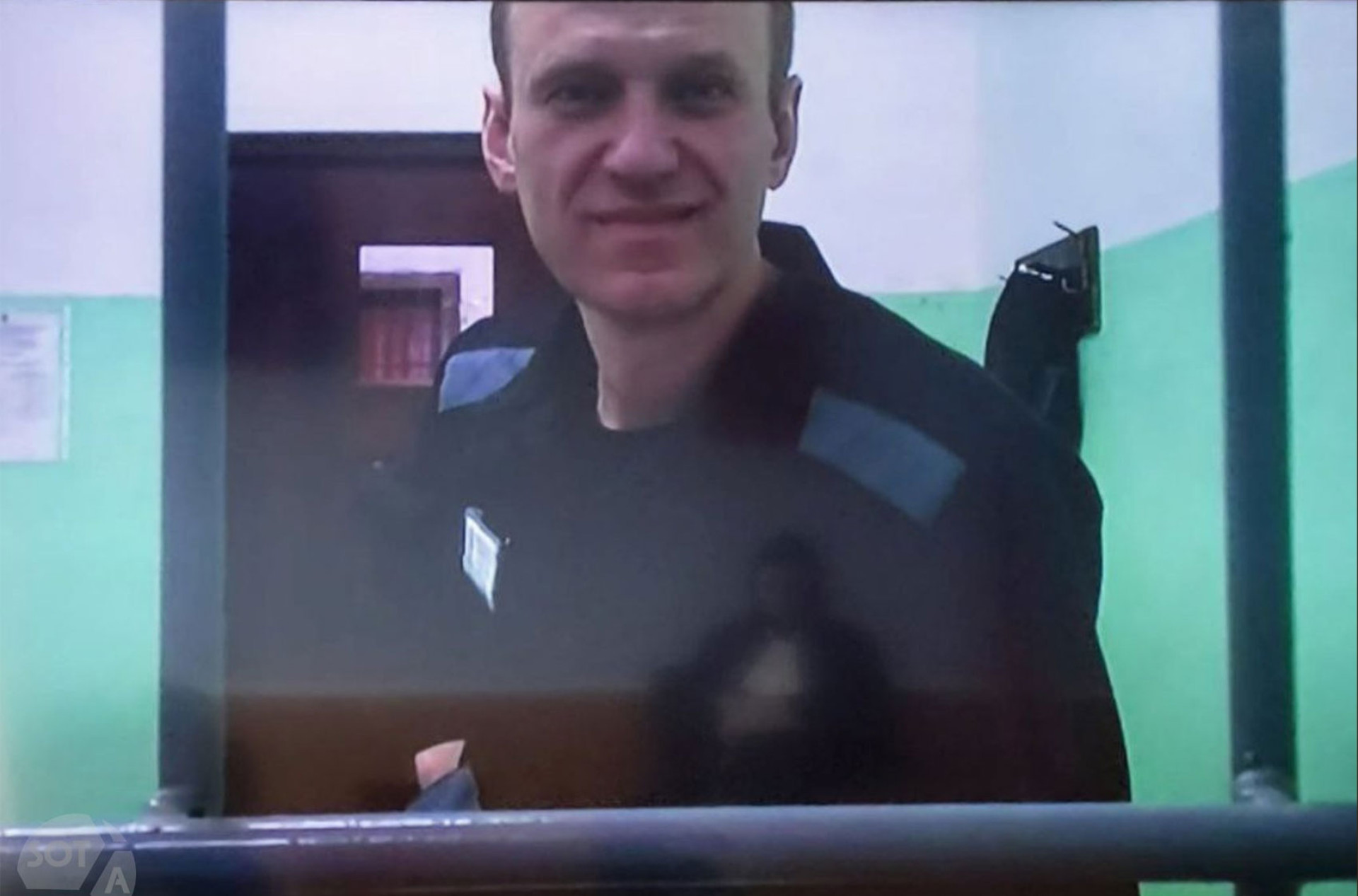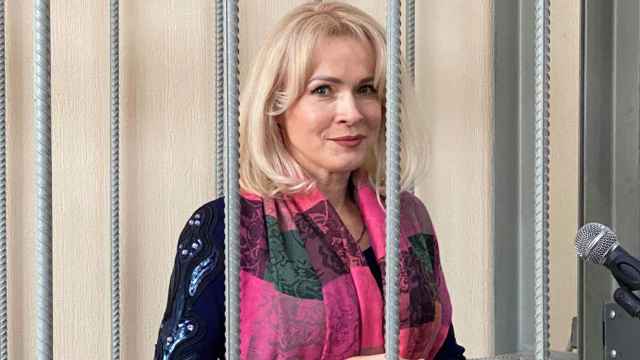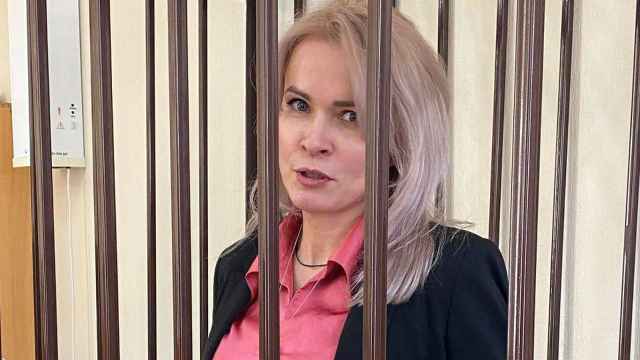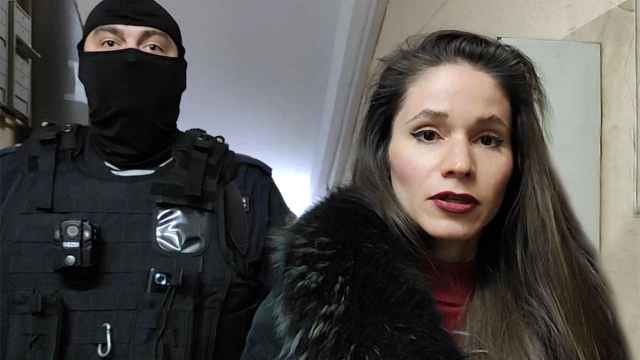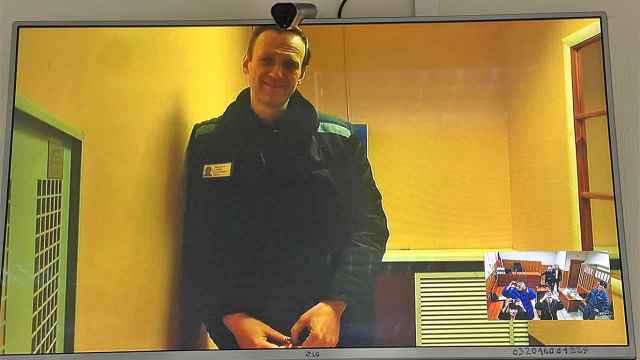MOSCOW – "I plan to do interviews, reports and avoid going to jail."
With these words, actress Antonina Favorskaya landed her first job in Russian media in 2022.
She soon became a court photographer. Driven by her activism, she took photos of Russian political prisoners in court for the independent SOTAvision news outlet.
Two years later, Favorskaya herself would be the one being photographed in court after she was arrested on extremism charges that she and her colleagues consider to be revenge for her journalism and political views.
If convicted, she faces up to six years in prison.
Favorskaya, 34, entered journalism amid Russia's wartime crackdown on free media which has forced nearly all independent journalism into exile and outlawed independent reporting on the war in Ukraine.
The risks didn’t appear to stop her.
"Her soul truly ached," said SOTAvision editor Vyacheslav Tikhonov, who met Favorskaya during the trial of opposition politician Ilya Yashin in 2022.
"She was seeking like-minded people. It was her initiative to bear the burden of attending every major trial to capture photos,” Tikhonov, who led Favorskaya into the profession, told The Moscow Times.
Described as “irrepressible” by her colleagues at SOTAvision, Favorskaya regularly covered late Kremlin critic Alexei Navalny’s court sessions. She recorded his last court hearing a day before his Feb. 16 death in an Arctic prison and took near-daily photos of his grave in Moscow.
In a 2023 interview, Favorskaya, who worked as a theater and film actress until 2022, said she became interested in politics while studying journalism at university.
She has also photographed imprisoned opposition figures such as Vladimir Kara-Murza and Lilia Chanysheva, artist Alexandra Skochilenko, and many others considered by human rights defenders to be political prisoners.
"I once asked her to send her favorite shots from court hearings, and she sent me all the photos of political prisoners smiling as if she was seeking some kind of support and strength in them," he added.
Favorskaya, also identified by court officials as Antonina Kravtsova, was detained on March 17 while she was sitting with other journalists at a cafe near the cemetery where Navalny is buried. The next day, she was arrested for allegedly disobeying the police.
After 10 days behind bars, Favorskaya was arrested again in a closed Moscow court hearing — this time for two months on charges related to the “extremism” case against Navalny and his Anti-Corruption Foundation (FBK).
Authorities accused her of “collecting material, preparing and editing videos for FBK,” which Russia banned as an “extremist” organization in 2021.
Navalny’s team denied that Favorskaya had published “anything” for FBK, saying that “a journalist is accused of being a journalist.”
Favorskaya said in court that she believed her arrest was linked to an article of hers that said Navalny had been tortured by prison authorities.
“This is due to the persecution of me as a person who has written about Alexei Navalny for several years, and who continues to write and speak about him, sharing the same beliefs, judgments and ideas as Alexei Navalny. Therefore, the persecution has a political angle,” Favorskaya said.
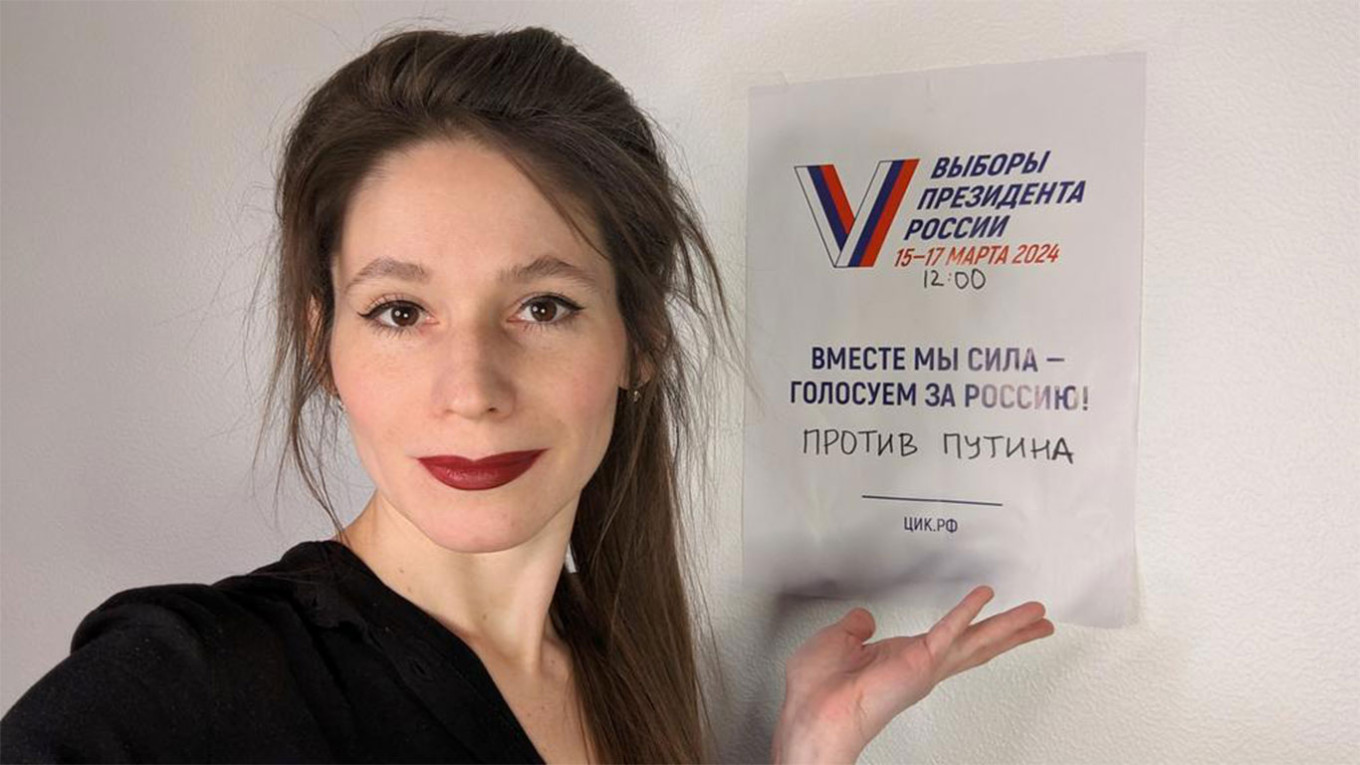
SOTAvision has appealed to the United Nations High Commissioner for Human Rights over Favorskaya’s arrest, saying that the Russian authorities “have finalized a formula wherein not only opposition politicians are branded as criminals and ‘extremists,’ but also the lawyers who defend them, and ultimately the journalists who cover their struggle.”
SOTAvision founder Alexandra Ageeva told The Moscow Times that despite the intensified pressure on journalists since the start of the war, the "extremism" charges against Favorskaya were still unexpected.
“She is accused of collecting material, video and photographic material from Navalny’s trials — this is exactly what she is supposed to do as a journalist,” Ageeva said. “This is a case of persecution of a journalist for her journalistic activities.”
According to a report by the Council of Europe Platform for the Safety of Journalists, at least 27 journalists are currently imprisoned in Russia. Authorities have also blocked more than 130 media outlets over the past two years.
These repressions against journalists should be seen as part of the “chaotic picture” of the state’s pressure on the opposition, said Andrei Kolesnikov, a senior fellow at the Carnegie Russia Eurasia Center.
“The focus of the persecution here is less on journalism and more on Navalny,” Kolesnikov told The Moscow Times.
“There is a race among law enforcement agencies to [carry out] repressions, just like there is a race among lawmakers in [carrying out] repressive initiatives,” Kolesnikov said.
At least five other Russian journalists were detained or arrested last month in addition to Favorskaya.
Alexandra Astakhova and Anastasia Musatova were briefly detained while waiting at the detention center for Favorskaya, who was expected to be released after her first arrest.
SOTAvision reporter Yekaterina Anikievich and RusNews correspondent Konstantin Yarov were detained while reporting on the police search of Favorskaya's Moscow apartment.
In Ufa, the capital of the republic Bashkortostan, RusNews journalist Olga Komleva, 45, was arrested on “extremism” charges. Komleva had volunteered at Navalny’s Ufa headquarters before Russia banned his organizations.
Both Favorskaya and Komleva have been designated political prisoners by the veteran human rights organization Memorial.
During her court hearings, Favorskaya can be seen smiling at reporters and making a heart shape with her hands — just like the political prisoners she used to photograph.
“I ask everyone who came to the trial: no matter what happens next, no matter what they come up with after this, do not be afraid for me,” Favorskaya said during one of her court hearings.
“I am not afraid of anything.”
A Message from The Moscow Times:
Dear readers,
We are facing unprecedented challenges. Russia's Prosecutor General's Office has designated The Moscow Times as an "undesirable" organization, criminalizing our work and putting our staff at risk of prosecution. This follows our earlier unjust labeling as a "foreign agent."
These actions are direct attempts to silence independent journalism in Russia. The authorities claim our work "discredits the decisions of the Russian leadership." We see things differently: we strive to provide accurate, unbiased reporting on Russia.
We, the journalists of The Moscow Times, refuse to be silenced. But to continue our work, we need your help.
Your support, no matter how small, makes a world of difference. If you can, please support us monthly starting from just $2. It's quick to set up, and every contribution makes a significant impact.
By supporting The Moscow Times, you're defending open, independent journalism in the face of repression. Thank you for standing with us.
Remind me later.



